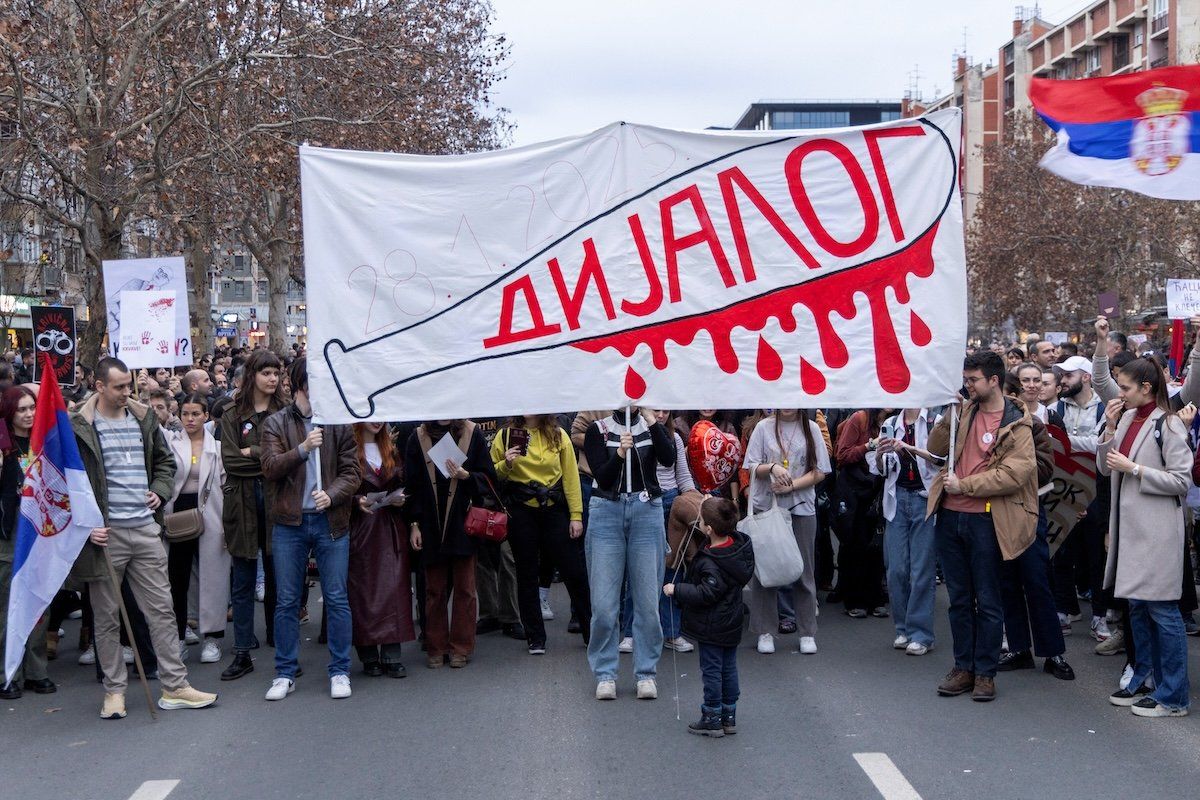Serbia is in political turmoil after Prime Minister Miloš Vučevićresigned Tuesday following months of mass protests touched off by a deadly accident at a railway station.
The background: In November, a section of the roof at the central station in Novi Sad, one of Serbia’s largest cities, collapsed, killing 15 people. The station had recently been renovated by a Chinese-led construction consortium as part of a broader Budapest-Belgrade rail link. Critics blamed the accident on graft, and mass protests led by students and other critics of the country’s right-wing populist government swelled.
The resignations and criminal prosecutions of top officials responsible for the project failed to quell popular outrage. Last week, tens of thousands of people joined a general strike, and on Monday, farmers groups joined in, blocking streets in the capital.
What’s next: President Aleksandar Vučić – a prominent, China-friendly ally of Hungary’s “illiberal” PM
Viktor Orbán –
must now decide whether to try to form a new government or go to early elections, which is what protesters and the opposition want. Vučić, in power virtually uncontested since 2017, has said he will decide within 10 days. The streets are watching.
